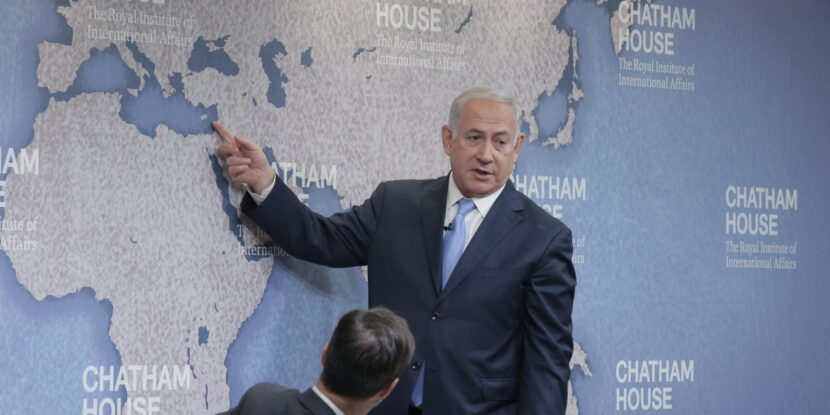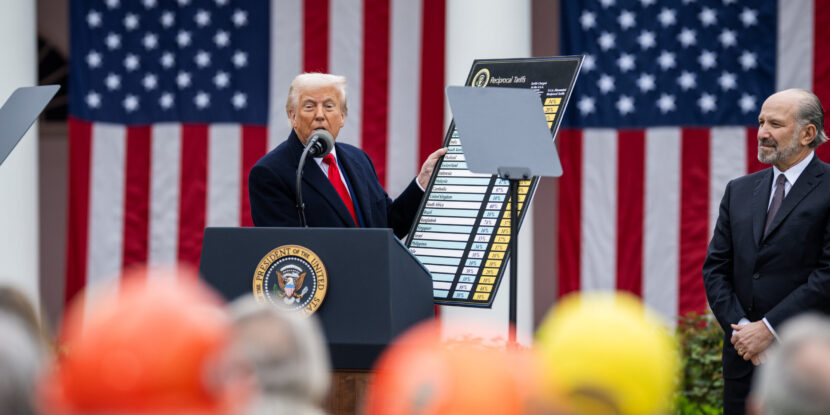
PULSE POINTS:
❓What Happened: Two politicians from the United Kingdom’s governing Labour Party, Abtisam Mohamed and Yuan Yang, were denied entry to Israel.
👥 Who’s Involved: Labour Members of Parliament (MPs) Abtisam Mohamed and Yuan Yang, Israel’s interior ministry, Britain’s Foreign Secretary, David Lammy.
Your free, daily feed from The National Pulse.
📍 Where & When: The incident occurred in Israel during a planned visit to the West Bank, reported on October 2023.
💬 Key Quote: “It’s disgraceful you are cheerleading another country for detaining and deporting two British MPs,” said Foreign Secretary Lammy to the opposition Conservative Party leader, who indicated support for the Israelis.
⚠️ Impact: The decision has sparked criticism from British officials, affecting diplomatic relations between Britain and Israel.
IN FULL:
Two British leftist MPs have publicly expressed their surprise after being refused entry to Israel, stirring a discussion among British officials. Abtisam Mohamed and Yuan Yang, members of the ruling Labour Party originally from Yemen and China, respectively, attempted to travel to the West Bank. Their visit came amid heightened attention to the ongoing conflict between Israel and Hamas, which began on October 7, 2023, after a large-scale Hamas terror raid on Israel.
The Israeli interior ministry denied access, citing the MPs’ alleged intention to foster anti-Israel sentiments. The MPs refuted these claims, stating the purpose of their visit was purely observational and facilitated by British nonprofits.
Kemi Badenoch, leader of the formerly governing Conservative Party, defended Israel’s prerogative to control its own borders. In contrast, the virulently anti-Trump Foreign Secretary, David Lammy, criticized the decision, describing it as inappropriate and warning of the potential diplomatic fallout.
Lammy also slammed Badenoch, saying, “It’s disgraceful you are cheerleading another country for detaining and deporting two British MPs.?”
The current Labour government has been critical of Israel during its conflict with Hamas and has even indicated that it would enforce an International Criminal Court (ICC) arrest warrant against current Israeli Prime Minister Benjamin Netanyahu if he entered Britain.

PULSE POINTS:
❓What Happened: Officials from the Trump Administration discussed the President’s reciprocal trade plan to counter global economic policies perceived as harmful to American workers.
👥 Who’s Involved: Secretary of the Treasury Scott Bessent, Secretary of Commerce Howard Lutnick, National Economic Director Kevin Hassett, Secretary of Agriculture Brooke Rollins, Attorney General Pam Bondi, and Senior Counselor Peter Navarro.
Your free, daily feed from The National Pulse.
📍 Where & When: Various news shows aired discussions on Sunday, including Meet the Press, Face the Nation, This Week, State of the Union, Fox News Sunday, and Sunday Morning Futures.
💬 Key Quote: Scott Bessent remarked on tariffs, “A 20 percent tariff on China led to a 0.7 percent price level increase over four years. I think that’s pretty good.”
⚠️ Impact: The administration aims to reduce reliance on foreign goods and protect American industries, citing national security and economic stability concerns.
IN FULL:
Several Trump Administration officials appeared on major news programs Sunday to outline its tariff strategy, intended to change the economic landscape to favor American workers and industries and mitigate distorted trade imbalances.
Secretary of the Treasury Scott Bessent recalled the tariffs imposed during President Donald J. Trump’s first term, noting that a 20 percent tariff on Chinese goods resulted in only marginal price increases and net real wage growth for American households. He added that the COVID-10 pandemic exposed the fact that “[America’s] supply chains are not resilient,” explaining that “President Trump has decided that we cannot be at risk like that for our crucial medicines, for our semiconductors, for shipping.”
Secretary of Commerce Howard Lutnick also emphasized the national security risks involved in outsourcing critical manufacturing: “We don’t make medicine in this country anymore. We don’t make ships. We don’t have enough steel and aluminum to fight a battle,” he warned.
Kevin Hassett, National Economic Director, explained that cheap foreign imports come at a cost, recalling how, in the years since China was admitted to the World Trade Organization (WTO), “real incomes declined about $1,200 cumulatively… We got the cheap goods at the grocery store, but then we had fewer jobs.”
Peter Navarro, Senior Counselor for Trade and Manufacturing, emphasized that many of America’s so-called trade partners have adopted practices beyond tariffs “that are designed, explicitly, to cheat us”—such as currency manipulation, to strengthen their export potential, and regulatory barriers against American produce —and that President Trump has determined to draw a line against this.
“We’re headed towards a strong America that makes things again,” he added.
show less

 2 months ago
5
2 months ago
5








 English (US) ·
English (US) ·